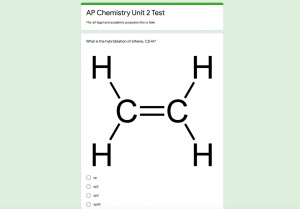Yes, BLS Should Have Virtual Tests
Online tests are necessary for gauging a student’s understanding of the lesson. Photo by: Hannah Stoll (V)
November 30, 2020
Over the past year, the format of learning has changed drastically as students across the globe have shifted to online schooling in light of the coronavirus pandemic. Tests, nevertheless, have endured in this new format — and for good reason, too.
“Tests are necessary for virtual learning because without them students wouldn’t have enough motivation to study. So much of our grade this year is based off of homework and participation which do not require as much due diligence as an actual test,” says Roan Wilcox (V).
Because each class is held only three times a week on the virtual schedule, as opposed to every day during a typical school year, teachers cover less content in class. This means students need to spend more time outside of class studying the material to meet learning benchmarks and thus tests create the necessary motivation to meet them.
This is especially true in classes such as Latin or math, where much of the material taught in class only builds on itself. Having concepts down will make it easier to do well in the class down the road.
Latin teacher Mr. Salvatore Bartoloma says, “I think number one [a test] is a measure of accountability for kids to stay current on their material. I think sometimes it’s easy for kids to put off learning a little bit until there’s the quiz or the tests so they create these little “benchmark” […] moments to make sure that you know what’s going on.”
In addition, tests help students identify the information that they have internalized. In many fields, especially those involving science, technology, engineering and math, there has been an increased focus on the application of concepts as opposed to rote memorization. Tests can be an effective indicator of understanding because they can differentiate between someone who has memorized a concept and someone who can actually use it.
Tests cover the key concepts and details from the class, meaning that a good grade indicates that student understands the material and pays attention in class.
Tests are just as helpful to the teachers. They are adjusting to completely new teaching formats and gauging the success of these new methods can be difficult.
“Sometimes we learn as much from the wrong answers as we do from students having the right answers. So if you see a consistent trend in students sort of making the same mistake […] it tells you as the teacher that’s something that you need to go back in and review,” says Mr. Bartoloma.
Despite the ease of looking up answers or referring to notes, it is often just as easy for teachers to tell if someone has cheated, either through unusual answer patterns, plagiarized responses or other similar giveaways. Tests that focus on applying concepts are usually more complicated and thus harder to look up. Taking a test might not be every student’s favorite task, but in the end, it is still necessary for virtual learning to be effective.





